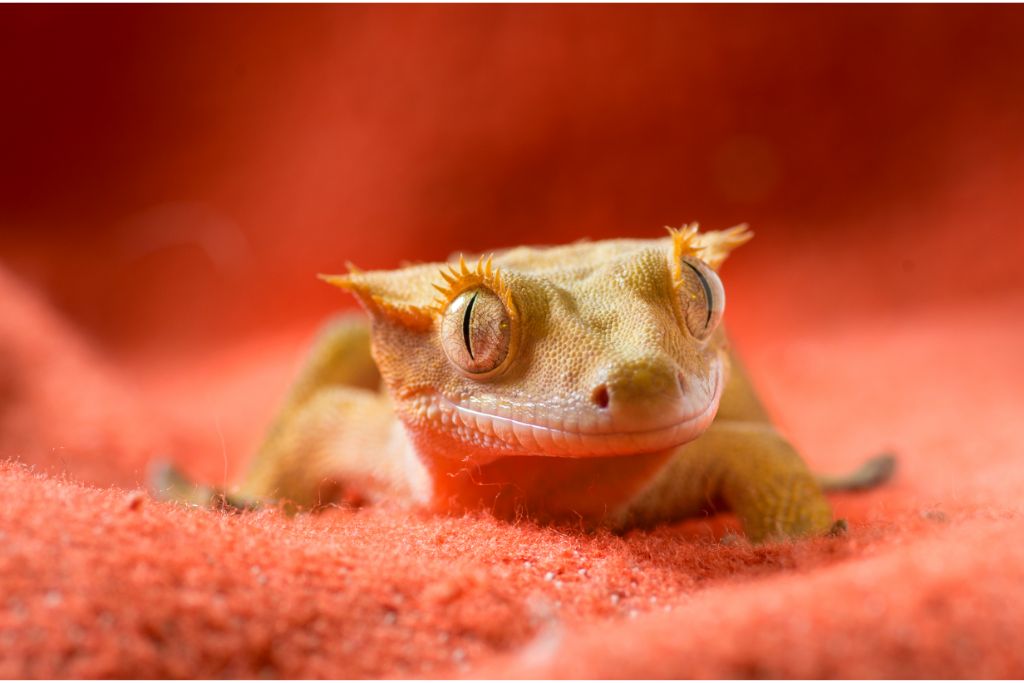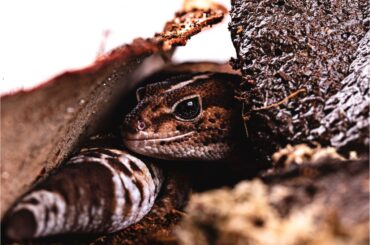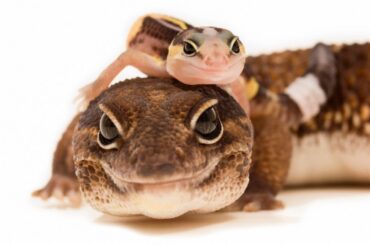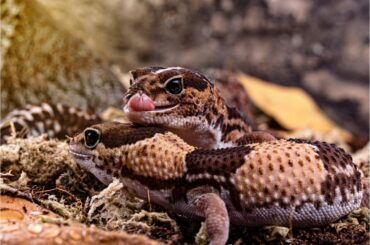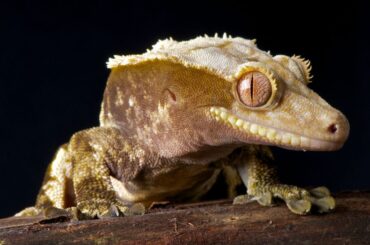Curious about crested geckos? These fascinating creatures are famous as pets due to their gentle nature and easygoing behavior. But here’s the big question: do they ever bite? Let’s dive in and unravel the mystery behind these adorable reptiles.
Have you ever wondered what makes crested geckos such unique companions? Their sweet personality and pleasant temperament make them great pets for reptile lovers. But the fear of getting bitten might linger for those thinking of owning one. So, do crested geckos bite?
Crested geckos are incredible creatures known for their docile and peaceful temperament. Many find these geckos delightful pets, but some might wonder about a potential downside: biting. Let’s explore this to ease any worries you have!
Crested Gecko Behavior and Temperament
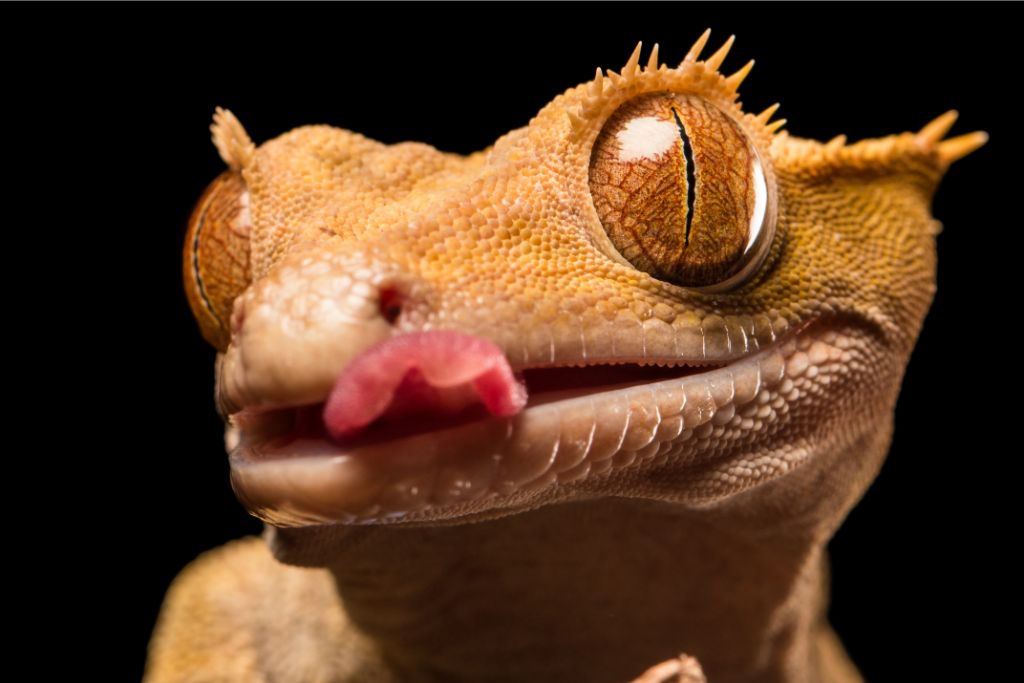
Crested geckos are pretty chill pals. They make fantastic pets for younger kids because they’re gentle and easygoing. These geckos could be more jumpy and quick, making them easier for smaller hands to handle. However, it’s super important to be soft and patient with them. Respecting their space is key!
Stress can make them sick, and we want our gecko friends to stay healthy. When hanging out with your crested gecko, it’s crucial to understand they have boundaries. They might not always want to be held or touched, and that’s okay.
They might need some alone time if they’re hiding or their tail twitching. Giving them space when they need it is like being a good friend. If they get too stressed from too much handling, it can affect their health.
Factors Influencing Crested Gecko Biting
Understanding a crested gecko’s behavior is essential to comprehend why they might bite. Factors influencing their biting behavior can be diverse and might relate to their mood, feeling threatened, or being startled. Here are some aspects that can affect a crested gecko’s tendency to bite:
Stress or Fear
Like people, geckos can get scared or stressed, causing them to feel defensive. Sudden movements, loud noises, or handling them roughly can make them feel threatened, leading to defensive biting.
Handling Techniques
If a gecko isn’t used to being handled or is held too firmly, they might feel uncomfortable, leading them to bite. Gentle, slow movements during handling can help them feel more at ease.
Health Issues
Sometimes, if a gecko is unwell or in discomfort, it may react by biting. Checking their health regularly and providing a suitable environment can help prevent this.
Territorial Behavior
Geckos can be territorial creatures. If they feel their space is being invaded, or if they encounter another gecko, they might bite to defend their territory.
Hunger or Stress from Mating
When geckos are hungry or stressed due to mating behaviors, they might become irritable, increasing the likelihood of biting. Ensuring proper feeding and a stress-free environment can alleviate this behavior.
Environmental Changes
Any sudden changes in their habitat, like temperature or humidity fluctuations, can stress out these geckos. It makes them more prone to defensive behavior, including biting.
Effects and Severity of Crested Gecko Bites
When a crested gecko bites, it’s usually more surprising than painful. Sometimes, it might lead to a slight redness or minor swelling at the site. The bite isn’t typically dangerous, but cleaning the area can avoid infection. Here are five effects and severity of crested gecko bites:
- Redness and Swelling: The bitten area might get red and swell slightly. It’s similar to a small bump or bug bite.
- Minor Pain: Usually, the bite doesn’t hurt much, but it might feel like a pinch or a tiny sharp poke.
- Possible Irritation: Sometimes, the skin where the bite happened might feel itchy or irritated for a short while.
- Rare Allergic Reactions: In rare cases, someone might have an allergic reaction, causing more severe symptoms, like intense itching or hives.
- Infection Risk: Even though it’s uncommon, there’s a slight risk of infection. That’s why cleaning the bite gently and keeping an eye on it is essential.
- Emotional Impact: Some might feel a bit scared or nervous after being bitten. It’s important to remember that geckos rarely bite and it’s often just a surprise.
Preventing Crested Gecko Bites
Understanding your crested gecko’s behavior is key to preventing bites. These delightful creatures might nibble if they feel scared or startled. To avoid bites, let’s explore a handful of simple yet effective tips for safe handling.
Gentle Approach
Start by approaching your gecko calmly and slowly. Abrupt movements might startle them, leading to defensive reactions. Being gentle and predictable can help your gecko feel more at ease during handling.
Supportive Handling
Always support your gecko’s body properly. They feel more secure when they’re not dangling or feeling unbalanced. Keep their feet in contact with a stable surface to make them feel comfortable and less likely to nip.
Avoid Startling Gestures
Sudden actions or loud noises can make your gecko feel threatened. Try to handle them in a quiet, calm environment and avoid unexpected or scary activities.
Recognize Their Signs
Pay attention to your gecko’s body language. If they hiss or move their tail, give them space and don’t touch them.
Proper Hygiene
Wash your hands before handling your gecko. This helps remove any scents that might startle or confuse them. It also protects them from any substances or smells that might cause them stress.
What to Do If Bitten
Understandably, being bitten by a gecko can startle you. If it happens, here’s what you can do:
- Stay Calm: If a gecko nibbles at you, take a deep breath. Geckos are generally harmless, so try not to worry too much.
- Clean the Bite: Use soap and water to wash the bitten area. This helps prevent any germs from causing an infection.
- Apply Antiseptic: After cleaning, dab on a mild antiseptic cream or ointment to keep the bite area clean and assist with healing.
- Observe and Seek Help if Needed: Monitor the bite for any changes. If it looks weird or bothers you more, don’t hesitate to seek advice from a grown-up or a medical professional.
Conclusion
Understanding the behavior of crested geckos is like learning their language. It helps us know when they’re happy, scared, or need space. By knowing what they’re saying, we can avoid surprising or scaring them, which reduces the chances of getting nipped.
This connection makes the gecko feel comfortable and cared for and lets us enjoy their presence without misunderstandings. It’s like having a secret handshake with our gecko buddies, keeping things cool and enjoyable for both sides!
FAQs
Do Crested Geckos Have Teeth?
Yes, crested geckos do have teeth. They have tiny, pointed teeth used for gripping and consuming their food.
Does a Gecko Bite Hurt?
Gecko bites typically don’t hurt much. Their bites might feel like a tiny pinch or pressure and rarely break the skin.
Are Geckos Harmful?
Geckos, including crested geckos, are not harmful to humans. They’re generally docile and not venomous.
Do Geckos Carry Rabies?
No, geckos do not carry rabies. Rabies is rare in reptiles; it’s more commonly associated with mammals.
Do Geckos Recognize Their Owners?
Geckos might not recognize their owners the same way a dog or cat do, but they can become accustomed to their owner’s presence and may show signs of familiarity, like being more comfortable when handled by someone they’re used to.

